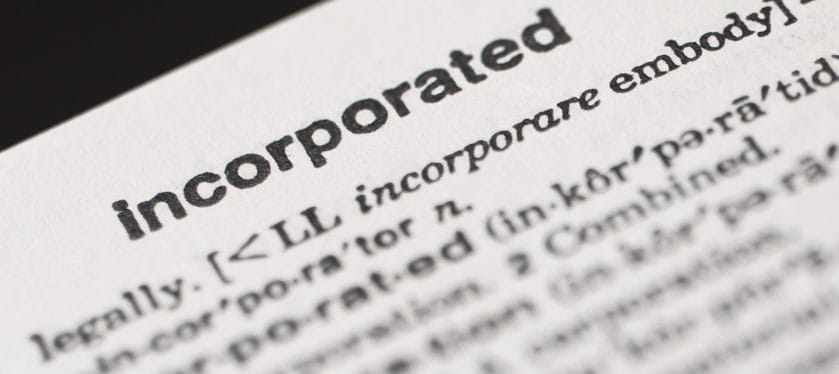Common Mistakes to Avoid When Incorporating

With all the information and resources available on the internet, it’s never been easier to incorporate your business. But, with the dizzying array of resources at our fingertips, it is critical that an entrepreneur be aware of the potential pitfalls in the process, and how to avoid them.
Below, we have compiled several of the most important and potentially costly mistakes to avoid when forming an LLC or corporation.
1. Choosing the wrong business structure. Other than a sole proprietorship and a partnership, which do not involve creating an entity with the state, there are three basic business structures in the United States. Each of these entities is distinct, and so choosing correctly will affect how your business operates, and most importantly, how it will be taxed.
An LLC (limited liability company) is the simplest structure, providing a degree of protection to the owner’s personal assets with a minimal amount of paperwork. In addition to LLCs, you can choose from two types of corporations, either of which provide some asset protection, and both of which involve more paperwork than an LLC. The major difference between the two types of corporations is how they are taxed for federal income tax purposes.
An S Corporation can be taxed like a partnership, but also allow taxes to pass through individual business owners. A C Corporation is typically a larger company with many shareholders that benefits from corporate tax breaks on profits, but its profits are taxed a second time when distributed to shareholders.
2. Incorporating in the wrong state. Generally, if your business has fewer than five shareholders, it makes sense to incorporate where your business is physically based. But larger businesses with more shareholders should consider incorporating in Delaware or Nevada, which have more flexible and business friendly laws than other states.
3. Deciding not to incorporate. Many freelancers and consultants believe their home-based businesses are too small to worry with the legalities of forming an LLC or corporation. But being complacent and comingling personal and professional assets may expose your personal assets to unnecessary risk.
Believing incorporation provides more protection than it actually does. As a business owner and operator, you are responsible for your actions and can face personal financial and/or criminal liability for your negligent or criminal acts.
Furthermore, before a financial institution will lend money to a small business, especially a new one, it will require that the owners, and usually their spouses if they are married, sign personal guaranties. You must continue to make good decisions to protect yourself and your personal assets even after incorporation, and should be aware of what personal exposure you face when you guaranty corporate debt.
4. Failing to follow corporate formalities or file tax returns and information returns on time for your state. Although LLCs have relatively few regulations, if the owners do not follow their state’s rules for operation of an LLC, the owners may be subject to personal liability for corporate obligations.
The owners must also understand what tax returns and other documents must be filed with the state of incorporation, and with other states where the corporation operates, to avoid penalties or jeopardizing the incorporation status.
As you can see, choosing to incorporate without the guidance of an accountant or attorney may be tempting, but isn’t wise. An attorney or accountant will send you down the correct path for your particular situation, which ultimately can save you thousands of dollars.
Sources:
4 Incorporation Mistakes Small Business Make, Intuit Small Business Blog, by Angie Mohr, 10/25/2012
6 Mistakes to Avoid When Setting up Your Corporation or LLC, Mashable, by Nellie Akalp, 11/28/2011





